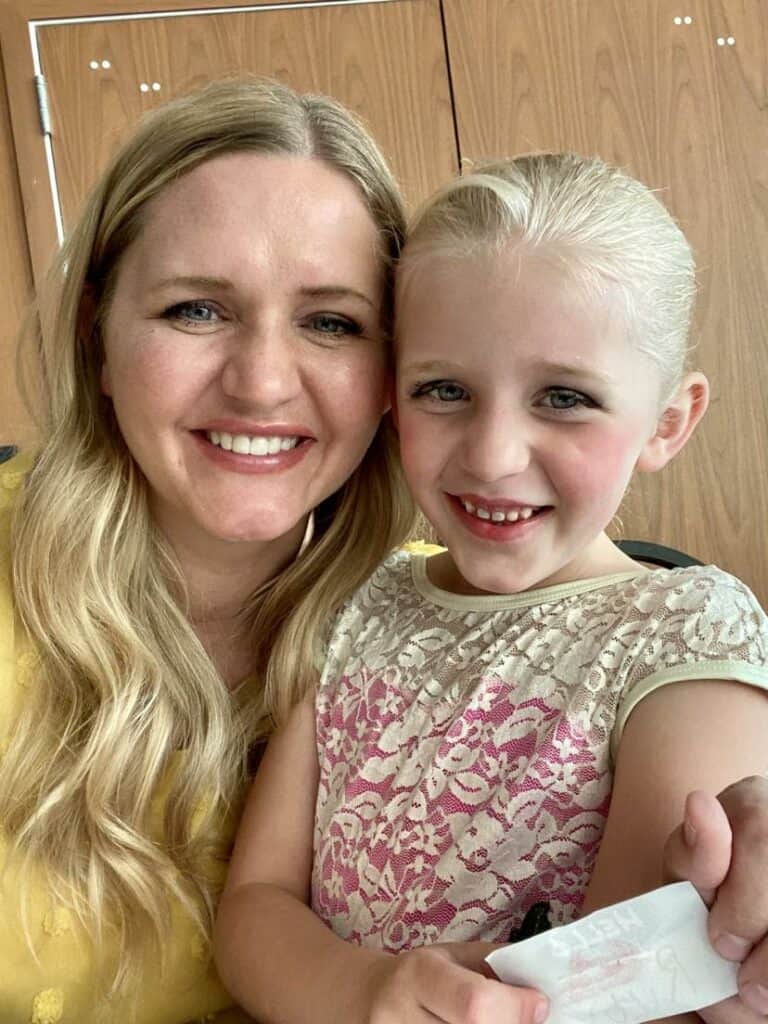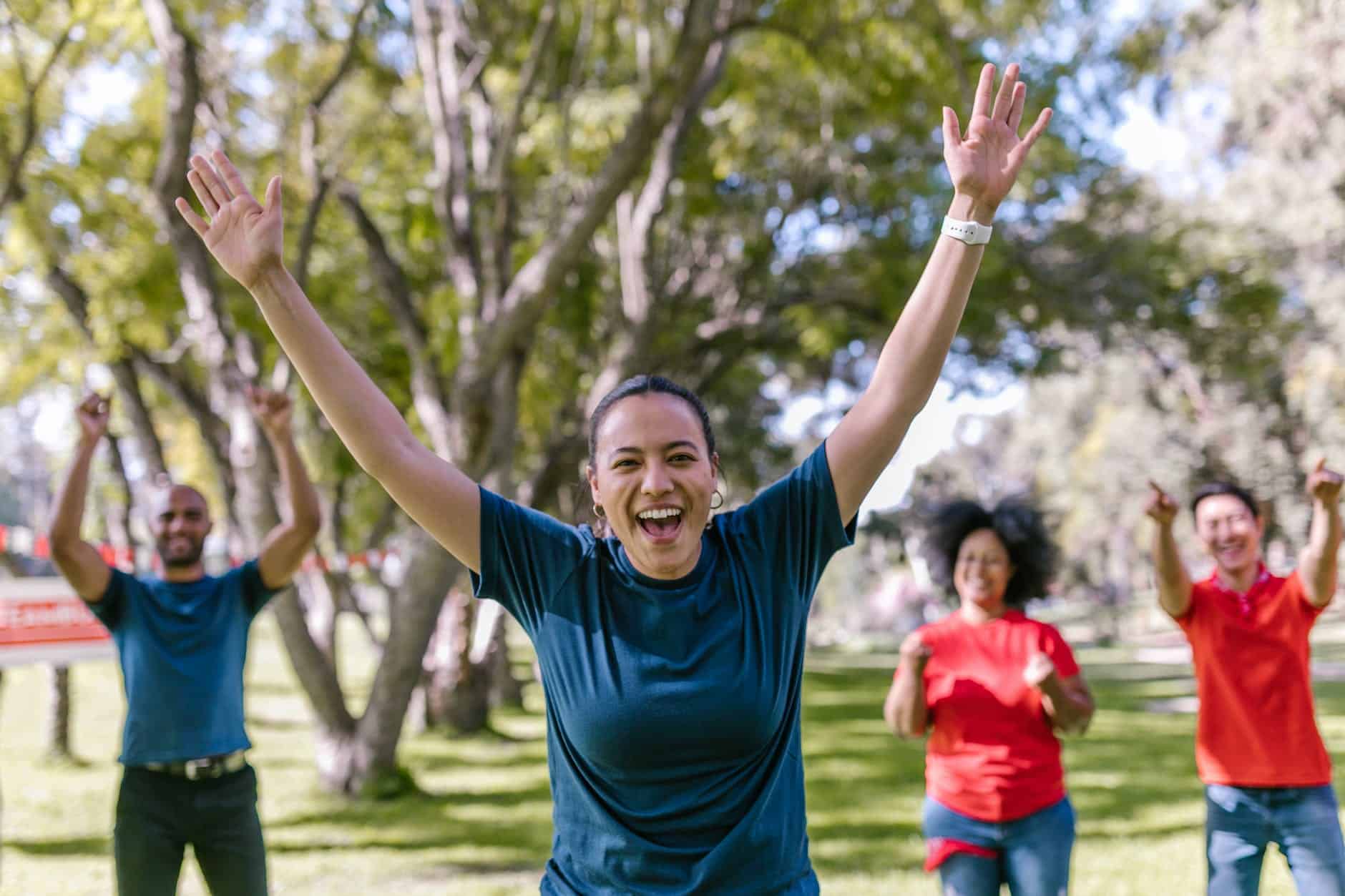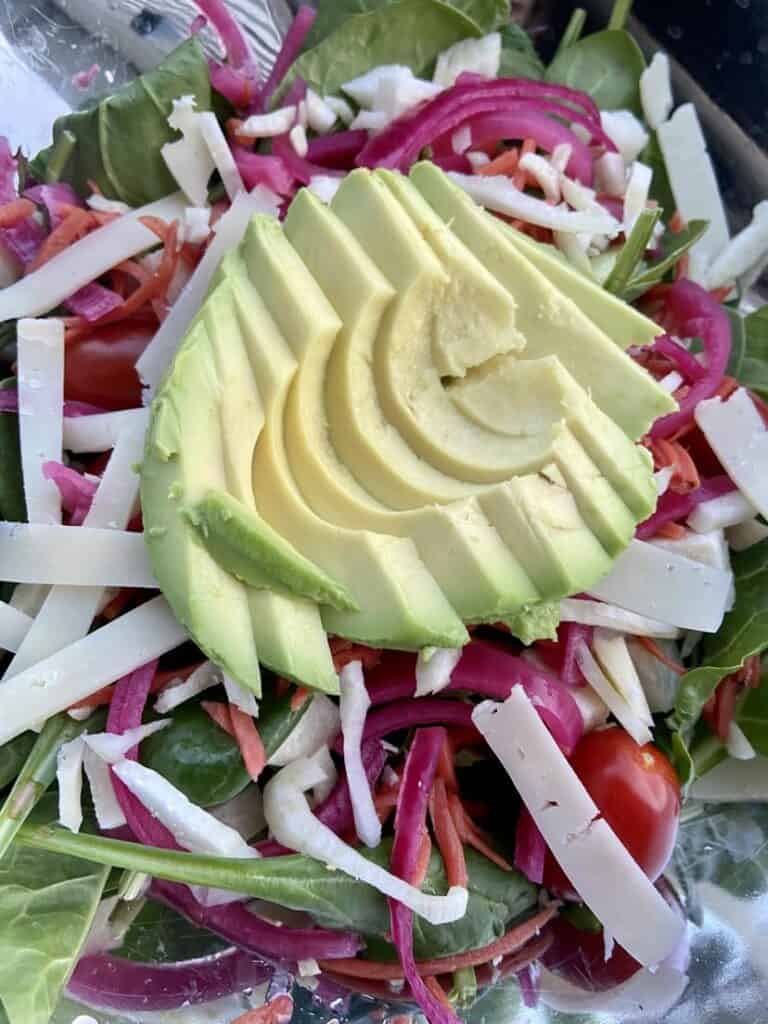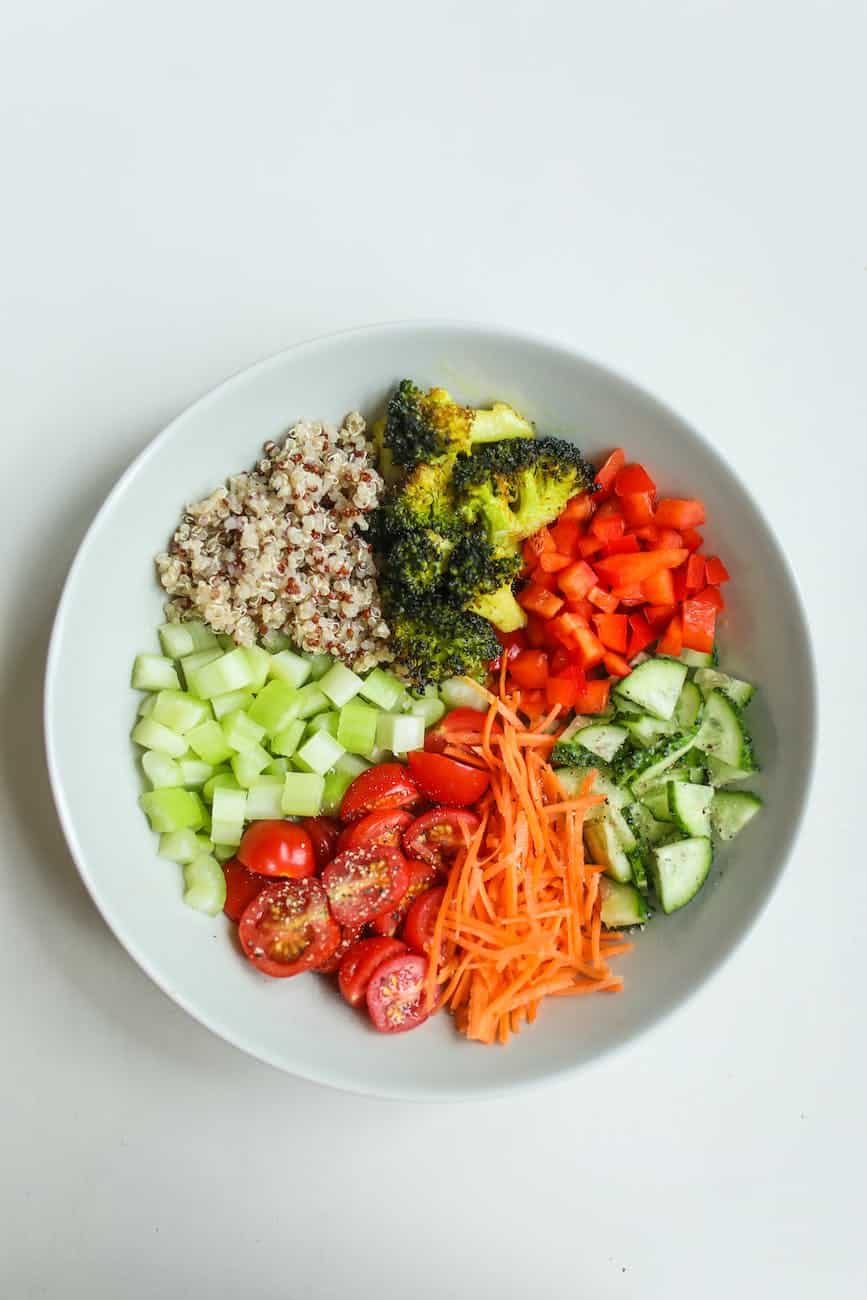Advice for a mom of a daughter with PCOS (Poly Cystic Ovarian Syndrome).
So your daughter has been diagnosed with Poly Cystic Ovarian Syndrome, PCOS for short, where do you go from here? I get asked this question all of the time and I knew I needed to write a post about it. It’s a complex subject filled with many facets so I’ll call this post my “mom’s starter kit for a daughter with PCOS” of information.

Who am I and why am I qualified to write this post?
I am a woman living with PCOS, I know what it’s like, I have lived, breathed, dealt with, agonized, researched, experimented with treatments for PCOS for the past 16+ years. More years if you count years before I knew what I was dealing with. I am also the mother of 2 daughters, 13 and 7, and since my daughters have a high genetic chance of having PCOS like me, I have thought a lot about how to approach this as a parent in addition to my own experiences with it.

What should I do when my daughter is diagnosed with PCOS?

When a daughter is diagnosed with PCOS, many moms want to know how they can help. They want the best for their daughter but it can be more than a little daunting to approach for multiple reasons.
Information online can be contradictory or extreme and you might not know what to do first or what PCOS entails for your daughter. Your daughter will most likely need some time and support to process the diagnosis or might not understand it at all at once and that is normal! It honestly can take years to process and understand and that is okay and perfectly normal.

Information comes a piece at a time and that is all a part of this journey with PCOS. It isn’t a death sentence to have PCOS but it does mean you will approach things like nutrition, stress, sleep and fertility just a little differently.

Approaching PCOS with your daughter can be emotional and extremely sensitive, your daughter might get defensive if you try to help, she may think that your love is dependent on how she looks or how her body functions and these can be ultra sensitive subjects.
There are most likely battles that she is facing inside that will get triggered slightly even if you aren’t meaning for them to come across that way. The emotional sensitivity of PCOS has been the top concern from mom’s that I have discusses this with.
Mom’s want the best for their daughters but if it is taken the wrong way it can hurt and can drive a wedge in your relationship. So how do we approach this? Obviously, this is a complicated answer and it’s going to be individual for each mother daughter relationship. However, I will offer some suggestions and perspectives on how to approach this in this post.
Let’s start at the basic’s. What is your job as the mother of a daughter with PCOS?
I’ve broken your responsibilities as her mother into what I call the three “E’s”.
Encourage
Empower
Educate
My first “E” is ENCOURAGE. Be her number one cheerleader.

Encouraging means that you always make sure your daughter authentically knows you think she is beautiful, wonderful, amazing and special inside and out. No. matter. what.
Obviously we want our daughters to grow and develop and I am not talking about sugar coating everything but I am talking about having her know at the root of advice and concerns is a mom that loves unconditionally and will cheer her on in her journey.
Your job as their mom is to be the unwavering and annoyingly supportive source for her in her world. In theory and in a perfect world this would be easy but in reality it can be really hard to do, especially, if you have a sensitive daughter who has dealt with societal pressures and bullying for weight, perfect skin, hair, overall body image and any one of a million things we get pressure and negativity on daily in our society.
None of us are perfect, so lets get that idea out of our heads. We can apologize and discuss societies pressures with our daughters, turn it into a discussion and not a taboo subject. If it’s something that deeply impacts your relationship, you may consider doing therapy with her, to let her know it’s something you want to improve on and grow with her on. Encouraging is easier when you are both willing to work.
So in conclusion, I would suggest – authenticity, sensitivity and consistency as the key ways to building up our daughters inner dialog of how she view’s herself and how she thinks mom views her. This foundation will help you be a support in her journey with PCOS.

Authenticity
Authentically compliment everything you love about her, both personality and physical attributes, It’s okay to praise and build up both. “your eyes can light up a room when you smile”, “I love that you are so thoughtful with your friends”, “You are so creative”, “I love the way you see the world”, “I love the natural highlights in your hair” or even something seemingly silly like “You have the cutest toenails”. Hearing these over and over again will help her to know that it’s healthy for her to have positive thoughts about herself. She can love herself and you see her for her best self.
Sensitivity
It’s going to take time and you may get some kickback at first. It’s normal to question someone’s authenticity when they are showering you with compliments. Just keep doing it.
Consistency
We have all heard that old saying that “for every negative comment, we need 10 positive to make up for the negative”. Well, we live in a negative world, so you just have to be consistent with the compliments and love.
Next up we have EMPOWER!

PCOS is found in 1 out of 10 women, so it is common! In fact, it’s the most common endocrine disorder. While it’s annoying that it impacts so many women, that high amount of women suffering from it means that there is a big support community for PCOS!
A diagnosis of PCOS will likely feel really overwhelming to your daughter when she gets a diagnosis. What does it mean? Will I be able to have children? Will I be able to manage my health? All valid questions, the answer to the 2 latter questions, is yes, children are possible! And yes, you can manage PCOS so your health is good and quality of life is great!
Your daughter did not cause their PCOS!
Empowering your daughter in all aspects is so important as a mom. Let them know this is nothing they caused on their own. This is huge! So let me say it again. They DID NOT cause their PCOS!
They need to know that this is just how their body works, it’s a syndrome, it has both genetic and environmental factors, both of which are out of their control.
Any comments about food they eat or lack of exercise is going to make them feel defensive and they will feel like you don’t believe them and therefore they will feel like you aren’t fully on their side. From that point on, advice will be a struggle to give because there will be a barrier of hurt, misunderstanding and bitterness. So avoid it if you can, and if you have said something, apologize and admit that you are learning too and truly want what is best for them.

Let them know they can do this, you believe them and believe in them.
The next part of empowerment is connecting with a community of women who deal with PCOS. There are online group communities that are easiest to find. There is an instant bond between women who struggle with the same things. We understand each other, feel validated and learn from each other. It’s a beautiful and I would argue, that it is an essential need!
Not all groups for PCOS are created equal but there are lots of good ones. Find ones that are positive, informative and make you feel welcomed. If your daughter is old enough to join them then encourage her to do that. It can feel like a breath of fresh air to hear other women’s experiences with PCOS. I personally have gained so much from these groups! Even if it’s just solidarity.
PCOS can feel like something nobody understands and when you find someone who has the same issues and symptoms as you, it’s like being thrown a life preserver when you’re drowning and about to go under. The community really helps buoy you up. Gives you success stories to reference, new information about medicines, research and overall community support.
Watch YouTube videos from women with PCOS, books and articles and whatever information you can find that encourages them on their journey and gives them a place to ask and answer questions.
If you have a friend or someone you know with PCOS and feel comfortable, reach out to them. They can be a good support. I found a friend with PCOS and I remember her telling me it was her invisible wheelchair, something other’s didn’t see but it was disabling and hard for her. That saying “invisible wheelchair” stuck with me. A few months later, I was dealing with some bad medical lab work and some of the frustrating parts of PCOS. I remembered her saying that “invisible wheelchair” comment. As I sat crying on my stairs I texted my friend, her validation and compassion really helped me get through that time.
So community is important, do the work to find it and connecting your daughter to it it will empower her.
How To Educate; the final “E”.

Lastly, educate. Once you have the first two steps of encouragement and empowerment in place, then educate them. This doesn’t necessarily mean you sitting down and lecturing them, but it does mean teaching them how PCOS works and what medical resources they have to help them on their journey.
Here is a basic way to explain PCOS to them, especially if your daughter is young. Start by explaining what the Endocrine system is. The endocrine system refers to the hormones in our bodies.
Here is the definition of the Endocrine system as defined by the National Cancer Institute “The glands and organs that make hormones and release them directly into the blood so they can travel to tissues and organs all over the body. The hormones released by the endocrine system control many important functions in the body, including growth and development, metabolism, and reproduction. The endocrine system includes the hypothalamus, pineal gland, pituitary gland, thyroid gland, parathyroid glands, thymus, adrenal glands, and pancreas. It also includes the testes in males and the ovaries and placenta (during pregnancy) in females.”
Hormones help regulate every aspect of our body, they control blood pressure, blood sugar, periods, thyroid, etc. the endocrine system keeps our bodies functioning and feeling good.
What does PCOS have to do with the Endocrine system?
PCOS, impacts the endocrine system in a few ways. The most common form of PCOS is rooted in insulin resistance. To explain insulin resistance, lets start with the pancreas. The pancreas is an organ and is responsible for releasing insulin. Insulin is a hormone that helps open our cells so they can use the glucose which is the body’s form of carbohydrates and sugar we get from our food. This process of insulin opening the cells is vital to our bodies producing energy. Insulin works like a key that is opening a lock, it opens the cell wall to start this energy production process that takes place in our cells. Insulin also helps with energy storage.

What can happen with PCOS, is our pancreas becomes like a leaky faucet and releases too much insulin. When there is always insulin in the blood, the body protects it’s self from over producing energy by making the cells no longer respond to the insulin. So then the body sends out even more insulin to open those cells to make energy. Our bodies are amazing and will work super hard to make this process happen. However, additional insulin makes it worse and causes insulin resistance.
In women with PCOS, the extra insulin, which if you remember, is a hormone, isn’t being used effectively and that excess reaches your ovaries and makes them respond by creating extra testosterone. (This is a simplified explanation of that process but I’m trying to keep it surface level). You may think about testosterone as being most commonly associated with males, because it is the male sex hormone. Although women produce testosterone as well and it is natural and vital for women to have testosterone too. However, this excess of insulin raises those testosterone levels to an unhealthy level for the chemistry of a woman’s body. This extra production of testosterone is a stress response.

The extra testosterone then causes problems and can throw off other hormones as well. It can cause cysts to form on the ovaries, though many women with PCOS never actually get cysts but it does impact many women with PCOS. It can also impact weight gain, facial hair, hair loss on the head, acne, fatigue and other symptoms.
There are 3 key reasons PCOS is diagnosed by a doctor and you have to have 2 of the 3 to be formally diagnosed, although there are other factors that could lead to a diagnosis, these are the basic guidelines.
1 – Irregular periods
2 – Elevated testosterone levels
3 – Cysts on the ovaries
How do you prevent elevated testosterone levels and the negative side effects from it?
The key to managing this is to take an insulin sensitizer, something that will keep or make the cells sensitive to the insulin once more, depending on what stage of insulin resistance you are in, it can be preventative or a direct treatment of insulin resistance.
Not all PCOS is insulin resistance driven. However, around 80% of women with PCOS have an insulin resistant type.
PCOS is a umbrella syndrome, meaning that is impacts many different women in many different ways, Some suggest there are sub categories of PCOS and how it impacts a woman’s body. You can do more research into those, but for the sake of keeping this a starter guide for mom’s I won’t get into detail about those.
Women with PCOS are also likely to have problems with inflammation, this can cause many healthy problems and aid in insulin resistance or other forms of PCOS as well.
Let’s talk nutrition and lifestyle.

What you eat is also crucial to controlling insulin resistance and inflammation, I will get more into nutrition below. Being active is also important. This helps the cells be more sensitive to the insulin and lower blood sugar levels.
Getting good sleep and controlling stress is also crucial with PCOS. As the stress hormones impact PCOS majorly as well. Supplements like vitamin D and B vitamins are also really important because they help regulate the hormones, helping them work better. I will get more into supplements below and offer some suggested ones to start with.
Ways to explain nutrition to your daughter.

Your daughter may be 11 or 35 and you still may have to help her learn about nutrition.
Starting with the very basics, teach her that a “calorie” simply means a unit of energy you get from food and your body needs calories for energy to run her body. Not just to exercise but for her heart to pump and her brain to function properly.
When it comes to PCOS nutrition is going to be just a little different.
I like the analogy of a fancy sports car. Teach your daughter that a car can run on gasoline but a fancy sports car needs premium fuel to run properly. Having PCOS is like having an extra fancy sports car that requires a special blend for it to work it’s best, drive the smoothest and get the most out of your car. To get that premium fuel blend; she needs to create it with the types of foods she eats. There are carbohydrates, proteins and fats. We need all of these for our fuel blend. We also need vitamins that help our bodies function, they are like a fuel additive.

Carbohydrates often get misunderstood in PCOS, they are not bad for your body but you have to know the carbohydrates that will be best and provide the highest nutrient density. Proteins help us stay full, build and maintain muscles and provide vitamins and minerals that we need. Healthy fats are vital to our body’s functioning well. Getting all of these are important to our body’s health. The ratio’s in which we eat them is a little specialized for women with PCOS. Also, the order we eat them in a meal plays a part in how our bodies metabolize them.
Studies have shown you should eat vegetables first, proteins second and carbohydrates last to keep blood sugar levels lower.
Here are some ratio examples that you may see with a PCOS diet.

45% of plate is vegetables, 30% protein, %5 healthy fats and 20% healthy carbohydrates, healthy carbohydrates referring to whole grains or complex carbohydrates like sweet potatoes or whole grain pasta.
When we teach our daughters that we eat to fuel our bodies, it gives more respect to our bodies and let’s them know that our bodies are worth fueling. We deserve special fuel to keep us running our best. If you have an older daughter who would take a chat like this as condescending then consider signing up for a community or online health or nutrition class together. Learn together so it’s not like an attack on just her.
Eating disorders are very common with PCOS women, the scary part is that often PCOS masks the eating disorder because the woman doesn’t become extremely thin to where you can see the eating disorder or disordered eating. It may even be encouraged for the woman to eat in a disordered way in order to obtain the social standard on how a woman’s body looks. This is another reason that nutrition education with PCOS is so important!
How to implement this knowledge into everyday nutrition:

Write a menu of all of her favorite meals and experiment with little ways to help those meals fit her “special blend” formula for her body. For example, if she loves teriyaki chicken with rice. You could use half rice and half cauliflower rice blended and work up to all cauliflower rice if you want to. Then, make the teriyaki sauce from scratch and adjust the amount of sugar that is added or use some natural sweeteners that have a lower glycemic index, like agave or stevia then add a big side of steamed or roasted veggies or a delicious fresh salad. This way she feels like she’s getting the foods she likes but learning how to keep a diet that is maintainable and makes her body feel and run good too.
I am a food blogger, I literally work with food every single day! I originally got into recipe development because I wanted healthy recipes that tasted delicious and also made me feel good. I have a free 4 week meal plan on my website here that might give you some inspiration on how to keep vegetables and protein at the forefront of your diet while still eating healthy carbohydrates.
Diets that work for PCOS

This is a controversial subject. Some say Mediterranean diet and some say Vegan diet, some will tell you Keto and others will say Paleo. All have some research done on them and all have varying success stories of people who love them. However, I honestly believe that you will be most successful at the diet that is most maintainable and natural to you with some nutritional adaptations, like what I discussed previously in this article with ratios.
If you had to choose a diet, because lets face it, sometimes we want to read a guide on what exactly to eat, like a special formula to get the results we want. So, with that in mind, I personally think that a Mediterranean style diet is the healthiest and easiest to maintain with PCOS. However, that is my opinion after trying many of the diet approaches out there through the years and trust me I have tried the vast majority of them.
Vegan – The idea behind the vegan diet is to get inflammation down and reduce saturated fats that clog up the insulin receptors. When I tried it, I ended up not getting enough nutrients from my food and it resulted in my vitamin D levels plummeting and my insulin resistant going nuts because my body was starving. So, if you go this route, make sure you are supplementing so you aren’t short and make sure you are getting enough calories, it’s incredibly easy to go too low, especially if you are also watching your carbohydrates while eating vegan.
Keto – We have all heard success stories and also horror stories about keto. I can tell you that going keto, drinking olive oil to hit my fat percentages and the whole thing, made me loose some weight while doing it, I did it for roughly 5 months and lost 20 pounds, but it also made my insulin resistance much MUCH worse and this took years and medication to remedy.
With Keto, your body gets used to not using carbohydrates as energy so it stores them like you are starving to death once you do eat carbohydrates, while it’s okay if you can keep the low carbohydrate and extreme diet all of the time but if you can’t then it can back fire.
I listened to a podcast once that describes the process involving the thyroid after one stops doing a extremely low carb diet and I definitely saw that happen with me once I stopped keto. In fact, my body quickly gained back more weight than I lost and it was a bad thing for me. It is also hard on the digestive system. So I would advise against it. However, I have friends that have done it and maintained it and swear it helped them. So take this as my opinion and not as concrete medical advice.
In conclusion, a Mediterranean style diet has been the most maintainable for me and yielded the best overall results. A healthy mix of vegetables, fruits, fish, meats, nuts, dairy and grains seems to hit my nutrient goals the best and also allows me to eat unrestricted so it’s maintainable for me.

Let’s talk about supplements.
You will most likely need supplements with PCOS. There seems to be some nutrient gaps and problems absorbing nutrients that comes along with the metabolic issues of PCOS. For me that is vitamin D deficiency, seems as though my body doesn’t synthesis vitamin D very well. This is a very common issue with PCOS women.
So what should you take to make sure your body can run it’s best?
NOTE: Please keep in mind, I am not a medical professional and I am not giving this information as a medical professional, this is meant as a guideline and a starting point for supplements, If you have questions or concerns, please talk to your health care provider about your own individual needs.
- Women’s daily vitamin – this covers overall supplemental needs
- Vitamin D3 (Vitamin D2 can also be taken as well and is often found in prescription strength, D3 is animal derived and absorbs better, D2 is plant derived and absorbs a little less) a multivitamin has this in it but I always take additional. I would suggest 2-5 thousand IU pills, 3-7 days a week. Again, this is something to discuss with your medical provider.
- Myo-inositol and D-chiroinisitol – 40:1 ratio – this is a vitamin like supplement, it mimics the B8 vitamin and helps with the cell’s lining and the energy exchange that happens in the cells. It helps regulate hormones, including insulin and that will help regulate blood sugar and the amount of insulin that goes to the ovaries, resulting in lower testosterone levels and less symptoms. Ovasitol is the brand of the powdered form that mixes tastelessly into any non-carbonated drink. It is a higher concentration than pills. 4,000 mg is the suggested amount for PCOS according to Ovasitol. The pills suggest 2,000 mg. Both will work at lowering A1c levels and reducing symptoms of PCOS.
- B complex – great for hormonal health and mood.
- Zinc – helps ovarian health and insulin resistance.
- Fish oil or flax seed oil – both have been shown to help with weight loss in PCOS.
- Magnesium – great for stress and PCOS.
- Curcumin – This is the active ingredient in turmeric and reduces inflammation. Studies recently came out that have shown it can make metformin work better.
Insulin sensitizers:
- Berberine – Very powerful over the counter supplement that works very similar to metformin but without side effects some may experience with metformin. It will lower blood sugar in about 15 minutes and lasts in the system for about 24 hours. (eat a snack with it because the drop in blood sugar can make you get a headache or feel dizzy)
- Metformin – A prescription for insulin sensitivity and lowering A1c blood sugar level’s. The extended release causes less stomach and digestive discomfort.
- Aloe Vera – I am new to this but studies show that it helps as a pre-biotic and helps manage blood sugar. You can buy the pills on Amazon or drink the juice.
- Myo-inositol and D-chiroinisitol (listed above in supplements, but helps low and manage a1c blood sugar levels)
- N-Acetylcysteine (often seen as NAC)- helps with fertility, insulin resistance and inflammation.
Additional supplements and medications that might help PCOS symptoms:
- Spearmint tea or capsules – Helps reduce hirsutism or unwanted body hair on the face or chin.
- Saw pimento – Also helps with hair loose or excessive hair growth in places you don’t want it.
- Spironolactone – Prescription for Hirsutism.
- Folic acid- good for egg health
- Probiotic- helps with PCOS digestive issues and bloating, immune system and overall body balance.
Exercises for PCOS.

This can be a controversial topic as well. Some studies suggest that high intensity exercise increases the stress hormones and that can negatively impact women trying to loose weight and manage PCOS.
Some suggested exercises for PCOS are:
- Low impact resistance training, like weights and circuit training. Great for blood sugar, muscle and bone health.
- Others suggest yoga and other low intensity workouts. These also help lower and regulate stress hormones.
- Walking is hugely beneficial for insulin resistance, the recommended amount is 3 hours a week. According to studies. walking at least this much showed a large impact on managing insulin resistance.
- High intensity workouts can be done but may increase stress hormones. It seems that some women can do them and others have negative effects from the stress hormones. However, it seems like a very individual decision. I personally have benefited from them at times and other times they seemed too much for my body’s hormones’ to handle.
- Overall, consistently staying active is important for any woman and especially a woman with PCOS.

In conclusion.
I hope this post has been insightful and helpful to you and given you a foundation for understanding PCOS and supporting your daughter through it. I truly believe all of us have beauty and so much to give this world, having a cheerleader or support system is crucial to us seeing and reaching our potential, especially while dealing with PCOS.